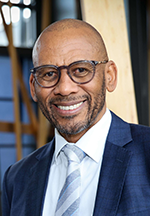
Today, the delivery of infrastructure takes place in a world marked by increasing volatility. Global uncertainties, such as geopolitical unrest, economic headwinds, climate-related disasters and shifting social dynamics are no longer exceptional events, they are the environment in which we work.

This reality places new demands on how we manage risk. Traditional frameworks that treat risk as something to be “controlled” or “contained” are no longer sufficient. What is required is a mindset that embeds resilience at the heart of infrastructure, one that is human-centred, digitally enabled and able to adapt to the unpredictable.
At Zutari, we believe engineers must move beyond a narrow focus on outputs to engage with the systems, communities and environments that give infrastructure meaning. Infrastructure is about more than concrete and steel. It is the platform upon which people access opportunity, safety, dignity and belonging. This human-centred approach is not an optional extra, it is fundamental to how risk management should be understood in the 21st century. When engineers understand what is truly at stake for those who will live with the infrastructure long after construction is complete, we are better equipped to anticipate challenges and design solutions that endure.
Resilience also requires a systemic perspective. We no longer design infrastructure in isolation, but as part of interconnected urban, social, economic and environmental systems. Drought affects power supply which, in turn, influences industry and livelihoods. A policy change shifts investment priorities and alters delivery pipelines. By recognising these interdependencies, we can design infrastructure that absorbs shocks and continues to function even when parts of the system are under stress.
Technology plays an increasingly important role in this process. Digital advisory platforms, predictive modelling and AI-driven asset management tools provide engineers with the ability to see further ahead and respond more rapidly. They transform risk from a reactive exercise into a proactive one, allowing us to anticipate failures before they occur, optimise asset performance and build in flexibility from the start. Technology does not remove uncertainty, but it gives us the tools to navigate it with greater agility and confidence.
Financial risk is equally pressing in today’s high-debt environment. With strained public finances and private investors looking for certainty, projects must demonstrate more than technical soundness, and show clear social and economic returns. This is where evidence-based methodologies, such as Zutari’s Greenlight, come to the fore.
It allows us to quantify the social value that infrastructure delivers, whether through improved health, reduced inequality or greater resilience. The Greenlight methodology provides the confidence that funders and decision makers need. Demonstrating value in this way makes projects more attractive to investors and more likely to withstand financial uncertainty.
Risk is not confined to technical or financial domains. Political risk is a constant reality, with shifting policies, misaligned stakeholder interests and governance challenges often as disruptive as natural disasters. Engineers cannot afford to be passive in this environment. We must take an active role in advocating for collaborative approaches that align diverse interests.
This is one of the reasons Zutari is proud to be a strategic sponsor of FIDIC 2025. Sponsorship is not only about presence; it reflects our belief that global forums like FIDIC are vital spaces for building alignment across geographies, disciplines and sectors. These conversations help reduce uncertainty by creating shared agendas for infrastructure delivery.
Our own organisational models also reflect this need for resilience. Zutari EX, for example, is designed to export engineering expertise and create distributed teams that work across borders. It allows us to continue delivering projects, even when mobility is restricted or when skills are scarce in a particular location.
Managing risk in today’s world is about embedding resilience in every aspect of delivery. It is about placing people at the centre, leveraging technology intelligently, demonstrating financial and social value, and engaging in political and professional advocacy. Risk is no longer something to be avoided; it is the condition of our work.
As engineers, our responsibility is to ensure that infrastructure is designed not only to withstand disruption, but to enable societies to thrive despite it. We must build systems that absorb shocks, adapt to change and continue to serve communities in the most challenging circumstances.
Zutari embraces this responsibility. Through our projects, our methodologies and our leadership role at FIDIC 2025, we are committed to demonstrating what it means to deliver infrastructure in uncertain times. By combining empathy, innovation and foresight, we turn risk into possibility and uncertainty into resilience.
For more information contact Cambridge Mokanyane, Zutari,

© Technews Publishing (Pty) Ltd | All Rights Reserved